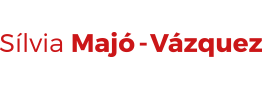Presentation of the Spanish Democracy Report by Fundación Alternativas
The Spanish Democracy Report (Informe sobre la Democracia en España) by Fundación Alternativas was launched 19 of October in Madrid. The document features a chapter by professor Sandra González-Bailón, University of Pennsylvania and myself including an analysis on modes of exposure to news information online (our chapter can be accessed here).
During the presentation of the report, I had the oportunity to talk about the news consumption patterns that characterize Spanish citizens’ behaviour on the web in 2019 and the main impacts of information technologies on the distribution of news. Alberto Penadés, director of the report, Sandra Leon, senior researcher at the Universidad Carlos III de Madrid, Pablo Simón, professor at the UC3M and the journalist Joaquín Estafanía also took part in the presentation and discussed the main challenges ahead for the Spanish Democracy. Overall, it was a highly interesting debate that can be accessed here.
Round table to present The Spanish Democracy Report 2019 (link to video in Spanish)







